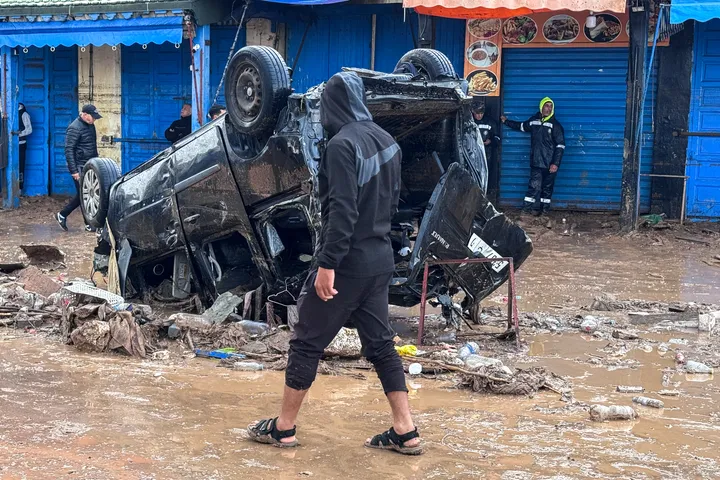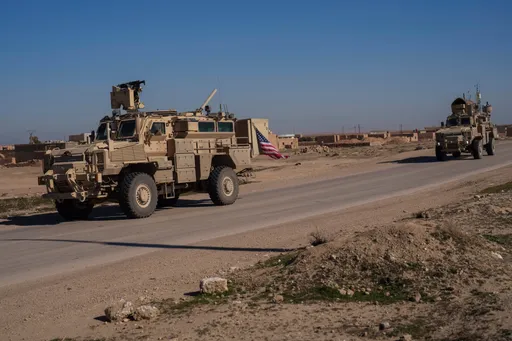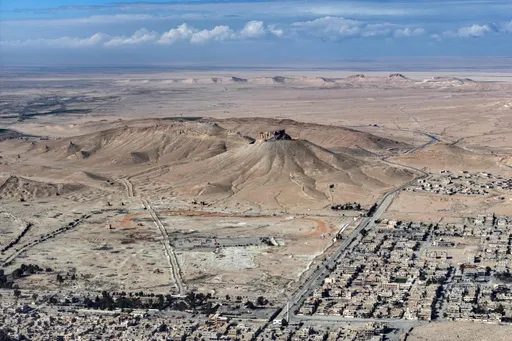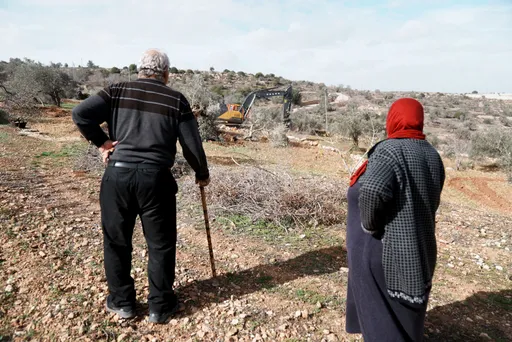Middle Eastern wars have cost, according to conservative estimates, around 1.5 million lives and 11 trillion dollars since the end of World War II. No part of the world has witnessed more persistent violence, chaos and instability as the region—inaccurately—dubbed the Middle East and North Africa.
No one challenges the fact that MENA is without a doubt a security complex (where any major security development in one part of automatically affects the rest of the complex). Despite being seen as a unit, the region has never been home to a comprehensive and inclusive security architecture, like NATO, since it gained independence from French and British colonization.
That’s not to say that it was never tried. Several attempts were made to establish a functioning regional security architecture. Without exception, they were all selective and exclusive by nature.
Beginning from the Hashemites versus the House of Saud on to the nationalist military republics versus entrenched monarchies, to several Arab League-sponsored collective defence pacts and agreements, and eventually sub-regional security arrangements in the Arabian Gulf and Maghreb, the region has long since been a playground for confronting internal and external forces, often divisively.
The status quo is quite clear, but why?
It’s a common refrain of any political discourse in the region to hear blanket statements pinning it all on ‘foreign intervention and meddling’, ‘dictatorships and lack of democracy’ or other similar accusations that serve to transfer fear and agency externally or conditions beyond control.
It makes for less cognitive dissonance you see. Better to blame the 'Big Bad Other', rather than admit that the Middle East and North Africa are exactly where they are because of specific turning points, actions, cultures and attitudes.
But all in all, these simplifications can’t be entirely ruled out either.
The reality is that a region with this much inherent complexity (and contradictions) can’t be explained away by taking a mutually exclusive approach, assigning blame to foreign factors or internal factors separately. They shouldn’t be conflated either.
Each plays their unique role to the sum of the overall mess. A heady mixture of intra-state, regional interstate, and foreign factors have brought about the disaster that the Middle East is living these days.
Insights from within
All in all though, we must look beyond the obvious and read into the subtext. The region and its catastrophic slide into anarchy and upheaval can’t be explained away without looking at the nuances of how the states were created in the first place.
It was not natural evolution that divided Syria or Iraq in such an imbalanced way, or caused the city of Daraa to be a part of Syria instead of Jordan, and the list goes on and on.
The region was shaped, often unnaturally so, according to the will of great powers instead of the region’s needs, and natural and demographic borders.
The bloody wars of liberation did their part, but often came up short. While certain states succeeded in ousting the coloniser, in twists and turns that proved unfortunate to the region, they only replaced colonial military rule with a local military elite that were nowhere near as successful in the business of statecraft and nation-building as they were in liberation wars.
On the other end, royal dynasties, lacking the revolutionary legitimacy of the military republics, ascended to the throne in some other states but were challenged to a large extent not only by the military republics, but by their own citizens.
This created a fragile and tense atmosphere in the region that would smother interstate relations in the region. To add more complexity to the scene, transnational movements and ideologies that did not recognise the inherited borders (drawn by colonialist powers) of their states, increasingly gained more ground.
Insecurities
The utter lack of harmony between political systems in the region (unlike NATO which consists entirely of democracies), taken together with such high levels of interstate interference and meddling in one another’s affairs resulted in a poisoned atmosphere where no state holds a shred of trust in the other.
High levels of distrust and low levels of respect for sovereignty are the ‘antichrist’ of a security regime in any region.
When it comes down to it, states pursue collective security in pursuit of protection, not replacement. It was only in 1964 that Arab states formally ended unification efforts aimed to produce a cohesive pan-Arab middle east. But meddling in one another’s affairs never really ended, meaning the lack of trust between these states only continued to erode.
This was to the extent that Arab countries never united their forces since the 1973 war (and even then, waiting for the other to advance first suspecting foul play) except under a foreign umbrella like the US-led anti-Daesh coalition.
This troubled relationship between internal security needs and foreign policy has only complicated things further. It’s understandable that states pursue collective security to meet their internal demands (NATO was formed on the basis of a shared perception of the Soviet ‘Red Menace’ by all its member states).
Security however, is over-internalised in the Middle East and North Africa.
States like Bahrain with split populations between Sunnis and Shia led by a Sunni royal family is understandably going to gear its foreign policy in a sectarian sense.
This over-internalisation of security, mixed with a healthy dose of moodiness, has made all regional security arrangements very selective and exclusive to the point that even major actors in the region can be excluded due to internal issues.
The Gulf monarchic states once proposed to offer membership to Jordan and the distant Morocco (both monarchies), while keeping the bordering oil-producing Iraq out of any consideration.
Collective security in the region therefore has been merely a tool by a power center, or a hub of smaller states, to meet some passing specific ends.
All these intra and inter-state ‘reasons’ would go on to create separate strategic interests in the region and the lack of a perception of a common enemy or even a rival - which is the lifeblood of any security regime.
The region however, has no common threat perception. Once and for a long time, Israel stood as a common threat. Now, however, Iranian expansion is the new spectre for many. For Algeria and Morocco for instance, it was each other.
Finally, any security regime has to be able to address security in a comprehensive manner and address the complicated issue of sovereignty.
Internal issues as civil wars, genocides... etc cannot remain unaddressed in the name of 'respect of sovereignty'. Sadly, comprehensive security seems far removed from the region, since all states have grave internal issues that require radical change or reform.
And yes, super powers are not innocent
It’s a common refrain of any Arab or regional discourse to hear blame heaped on the West and inimical dark super powers and their equally shadowy overlords. Perhaps its a cop-out to ignore the complicated issues the region can actually solve on its own. The region can get its act together and clean the mess up on its own.
This should not be conflated, however, with the fact that external powers are obviously meddling in the region’s affairs, and against its interests.
Colonial powers’ armies left the region, but the powers never really left.
In his famous “Why the Middle East Matters” speech years ago, Tony Blair made it clear that “no matter what, we can’t leave!”
The negative influence of external hands could be easily seen in the British role of unmaking Palestine and the French role in fueling social tensions in North Africa and greater Syria. It could be seen in the Tripartite Aggression against Egypt in 1956, the modern Russian and American role in Syria and American blind support for Israel allowing it to behave in an erratic, insolent and lordly manner that even the US itself cannot control.
Many of the intra-state issues the MENA and Arab world face in particular, can be traced back to the fact that the region’s borders were horribly shaped by the outside.
A quick glance at the demographics of Syria, Lebanon and Iraq tells you a lot about nonsensical lines in the sand, which arguably was the point. To add to an already volatile mix, the cold war’s polarisation brought about internal ideological clashes in most Arab states.
The way forward
That certain world powers had a destructive role in the region is one thing, but just blaming them for it is another. Many factors are to blame, but most importantly for the regional states, it is only possible to solve their problems by looking into the mirror and finding solutions for inherent exclusiveness both regionally and internally, the incomprehensive manner in which security is addressed, their lack of political will and enforceability, and finally, the demeaning of their peoples as subjects instead of citizens causing them to find alternative options other than the state.
Despite Zig Ziglar’s logic, human development and life coaching doesn’t really work in the dangerous game of world politics. History tells us repeatedly that only those who unite on the internal front, can solve their problems and come to the forefront of nations.
























